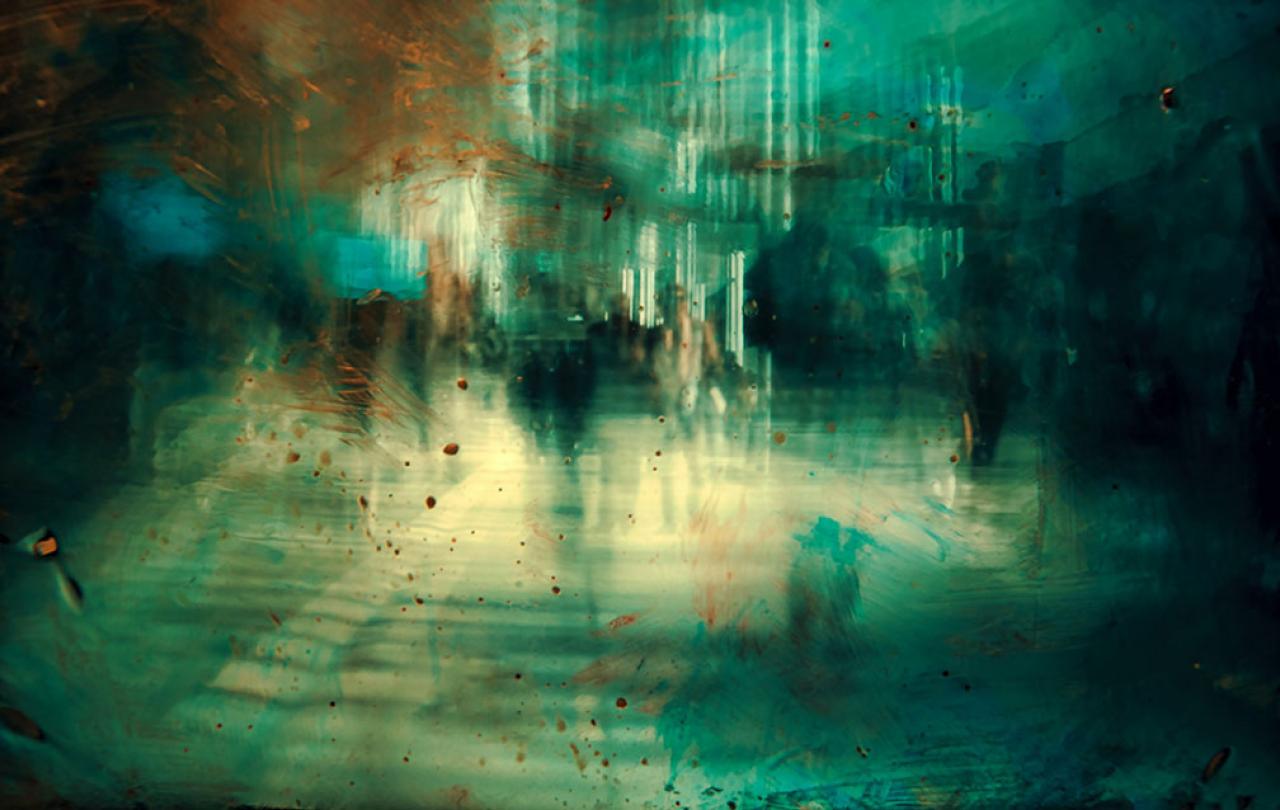
Death is something I’ve thought about quite a lot. As a bereaved friend, granddaughter, niece and daughter. Also, as an Anglican priest who has pastoral responsibility for those who are grieving and who conducts funerals. And as the mother of children who live in a vicarage and hear a lot about Mummy and Daddy doing funerals, too. Death is a part of our life in a way it doesn’t seem to be in a lot of families.
My first experience of death was when my grandfather died; I think I was about six. My memories of it are mostly about how the adults behaved. I remember, with uncharacteristic clarity, the evening when Grandma came to tell us that Grandad had died. I don’t remember what she said but I remember the feeling in the room. I remember it feeling as if someone had sucked all the air out, as if we were floating in a strange and uncomfortable space. I remember sitting in the kitchen with my mother not knowing the rules of engagement for this situation and feeling scared by that.
And in my experience, over the many years since then and in many different situations, I think most people faced with death for the first-time experience that same fear of not knowing how to be in the space of death; “I don’t know what to say”…
While I was a student, I had a friend who was the only Christian any of us knew. He also had cancer and didn’t have long to live. He made the choice do what people his age who didn’t have a death sentence to carry around with them were doing and went to Uni. He was one of the bravest people any of us had ever met. And at his funeral, a whole load of us from Uni turned up to pay tribute to this amazing young man who had touched so many lives by the way he had so courageously lived with death.
I could hold that space that I had been so afraid of all those years ago; I could give form and shape to the place of that which we must all face but which we all avoid so passionately in our western culture.
One of my daughter’s godmothers died of bowel cancer. She was one of the most faithful Christians I’ve ever known. When she was diagnosed, the whole church prayed for her healing. But the cancer grew and the chances of survival shrank. But wow did she use her last few months, weeks, days well. She wasn’t afraid of dying so she talked openly about it to everyone and the healing that came from how she lived then was powerful and widespread. She was an incredibly organised person and wanted to make sure she tied up all possible loose ends, like selling her house. She told with such joy about the conversation she had with the estate agent who came round to value her house who asked all the usual questions, “So are you looking to move soon? Where are you going?” I can only imagine his face as she answered with complete honesty about where she knew she was going. And I remember, with a powerful mixture of emotions, the conversation I had with her when I went to say goodbye. “I’ll see you there.” She said as I closed the door behind me.
Several decades after that visit from my grandmother, as a grown up and now a Christian, I had the privilege of conducting my grandmother's funeral. Grandma had been such a huge and influential part of my life and it was unthinkable that I should lead the service and not be allowed to be a grieving granddaughter – but it was even more unthinkable to risk someone else doing it, in case they didn’t do it “well”. I visited her in a Chapel of Rest, a couple of days before the service, so that I could say what I needed to say and cry as much as I was able. As I led the service and thus guided my family through the process of saying goodbye to the matriarch of our clan, I could hold that space that I had been so afraid of all those years ago; I could give form and shape to the place of that which we must all face but which we all avoid so passionately in our western culture. Because as a Christian, I know something, I know Someone, bigger than death.
Death seems to be the final taboo of our culture, the most intimate and unmentionable part of life. Which means we’re not very good at death. And a good death is a beautiful thing.
There’s a famous story in the Bible when Jesus’ friend Lazarus died. Jesus isn’t there while Lazarus is ill, in fact he isn’t there when he dies – he turns up four days later. In the Jewish culture of which Jesus was a part, there were all sorts of rules to comply with around death and one of the traditions was to gather the local community, including professional mourners to weep and wail, to encourage the expression of emotion.
Lazarus’s sisters were angry that their good friend Jesus hadn’t been there when they needed him. They were angry that their brother, Lazarus, had died. They were angry and needed someone to blame. I think we can all relate to that. When someone we love is suffering, when someone we love dies, a natural part of the grieving process is anger. And that anger is often directed at God, whether we believe in him or not.
When Jesus arrives, he generously receives their emotional rebuke, allowing them to give voice to their pain. And then he goes to the grave where Lazarus has been lying dead for four days. And in the shortest verse in the Bible, we are privy to his reaction. Jesus wept. Even God is distressed by the reality of death. Death was never meant to happen; death was never part of God’s good plan for humanity. And it makes him weep. He turns up, unafraid of the raw reality of death and bereavement.
Of course, in that situation, there was a reprieve – Jesus raised Lazarus from the dead. And the mourning turned to celebration. But of course, although we never hear about Lazarus’s final death, he did die, just like all the rest of us.
Death is the one thing we all have in common. Different cultures react to death differently. In some cultures, the entire community stops doing normal life and gather round the bereaved. In our culture, all too often, we pretend nothing has happened. We are determined to keep death in a box, packed as far deep as possible so we don’t have to look at it. Death seems to be the final taboo of our culture, the most intimate and unmentionable part of life. Which means we’re not very good at death. And a good death is a beautiful thing. The Christian friends I’ve known who died untimely young deaths have shown me that. People who are not afraid of death, people who know what’s going to happen after they’ve died can pave the way for us to walk into the place of death and find beauty there.
As we face death head on, we stare into the place of what’s really important. Everyone says glibly that on our deathbed we won’t be wishing we’d spent more time at work. But let’s not wait till our deathbed to work out where we need to spend more time. Let’s learn how to live well now, not hiding from the only guaranteed fact of our future.
At Lazarus’s graveside, Jesus made the rather elliptical claim:
“I am the resurrection and the life. The one who believes in me will live, even though they die; and whoever lives by believing in me will never die.”
When Jesus died himself, naked and nailed to a cross, he took on the greatest enemy of life. And he won. As Jesus rose again on the third day, he claimed victory over death. As Christians follow Jesus through this life, they do so in the assurance of eternal life with him after death. Wow, that’s the place of hope. That’s the place where you can look death right in the face, unafraid.
The Christian message of hope is a life raft in the cold, choppy waters of bereavement. It gives form and shape to something we don’t understand and don’t want to have to navigate. It gives us courage to accept the truth, when we really don’t want to. Knowing that there is something, Someone, who is bigger than death. And knowing that death – either my own or that of someone I love – isn’t the end of the story gives me the capacity to walk confidently and unafraid through my life towards its inevitable end. And into what’s next. To quote my friend, I hope I’ll see you there.





